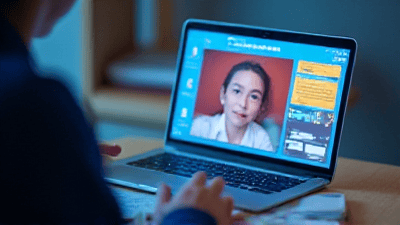
In our increasingly interconnected world, the ability to communicate across language barriers has become more crucial than ever. Bilingual education, which involves teaching students in two languages, has emerged as a powerful tool for enhancing cognitive skills, cultural understanding, and future job prospects.
Understanding Bilingual Education
Bilingual education programs can vary in structure but generally fall into two main categories: transitional bilingual education and dual-language immersion. In transitional programs, students are taught in their native language initially, transitioning to English over time. In contrast, dual-language immersion programs offer instruction in both the native language and the target language from the start, aiming for fluency in both languages.
Cognitive Benefits of Bilingual Education
One of the most prominent advantages of bilingual education is its positive impact on cognitive development. Research has shown that bilingual individuals tend to have enhanced cognitive flexibility, which refers to the ability to switch between tasks or mental frameworks effectively. This heightened cognitive flexibility allows bilinguals to process information more efficiently and adapt to new situations more readily.
Furthermore, studies indicate that bilingual individuals often exhibit improved problem-solving skills. The ability to navigate between two languages requires constant decision-making regarding which language to use, enhancing critical thinking abilities over time. Bilingual education encourages students to engage with different perspectives and approaches, fostering a mindset that values creativity and innovation.
Academic Achievement
Bilingual education has been linked to higher academic achievement, as students enrolled in bilingual programs tend to perform better in standardized tests and other academic assessments. Research has demonstrated that bilingual students often outperform their monolingual peers in subjects like reading, writing, and mathematics.
One reason for this academic success may be the way bilingual education encourages deeper learning. When students are taught in their native language, they can grasp complex concepts more easily, allowing them to transfer that knowledge to their second language. This process not only reinforces their understanding of the material but also enhances their language skills in both languages.
Moreover, bilingual education promotes literacy development. Students who read and write in both languages develop a more diverse vocabulary and a stronger understanding of language structure. This literacy proficiency contributes to overall academic success and sets the foundation for lifelong learning.
Cultural Appreciation
Bilingual education goes beyond language acquisition; it fosters cultural awareness and appreciation. Students in bilingual programs are often exposed to diverse cultures, traditions, and histories associated with the languages they are learning. This exposure helps students develop a broader worldview and cultivates empathy and respect for others.
By learning about different cultural perspectives, students gain insights into the richness of human experiences. This cultural appreciation encourages open-mindedness and reduces biases, allowing students to engage more effectively in a multicultural society. As global citizens, they are better equipped to navigate and contribute positively to an increasingly diverse world.
Social Skills and Communication
Another significant benefit of bilingual education is the development of enhanced social skills. Bilingual students often have improved communication abilities, as they can engage with a wider range of peers and adults across different cultural contexts. This language proficiency allows them to participate in various social interactions, building friendships and forming connections that may not be possible for monolingual individuals.
Additionally, bilingual education promotes collaborative learning environments where students work together on projects, discussions, and problem-solving activities. Such teamwork fosters interpersonal skills, including communication, negotiation, and conflict resolution. These social skills are invaluable not only in school settings but also in future workplaces, where teamwork and collaboration are essential.
Future Job Prospects
As the global economy continues to evolve, the demand for bilingual employees is on the rise. Companies are increasingly seeking individuals who can communicate effectively with diverse clients, collaborate with international teams, and navigate multicultural environments. Bilingual education equips young minds with essential language skills that can significantly enhance their job prospects in the future.
Moreover, research has indicated that bilingual individuals often command higher salaries than their monolingual counterparts. Employers recognize the added value that bilingual employees bring to their organizations, making them more competitive in the job market. By investing in bilingual education early on, students can pave the way for a successful and fulfilling career.
Challenges of Bilingual Education
Despite the numerous benefits of bilingual education, there are challenges to consider. One of the primary concerns is the potential for language interference, where students might struggle to separate the two languages, leading to confusion. However, effective bilingual programs implement strategies to mitigate this issue, such as consistent exposure to both languages and a strong emphasis on language development.
Another challenge is the varying support levels from families and communities. In some cases, parents may have differing language abilities, which can impact their children's language learning experience. Schools must actively engage families and provide resources to encourage language use at home.
Additionally, funding and resources for bilingual education programs can be limited in certain regions, leading to disparities in educational quality. Advocating for equitable access to bilingual education is essential to ensure that all students can benefit from this valuable learning opportunity.
Conclusion
The benefits of bilingual education for young minds are profound and far-reaching. From cognitive advantages to improved academic performance, cultural appreciation, enhanced social skills, and increased job prospects, the case for bilingual education is compelling. As we continue to navigate a globalized world, the importance of fostering bilingualism in our educational systems cannot be overstated.
By investing in bilingual education, we not only equip our youth with essential language skills but also empower them to become empathetic, open-minded, and successful individuals. Schools, policymakers, and families all play a crucial role in advocating for and supporting bilingual education, ensuring that all students have the opportunity to thrive in a multicultural society.



